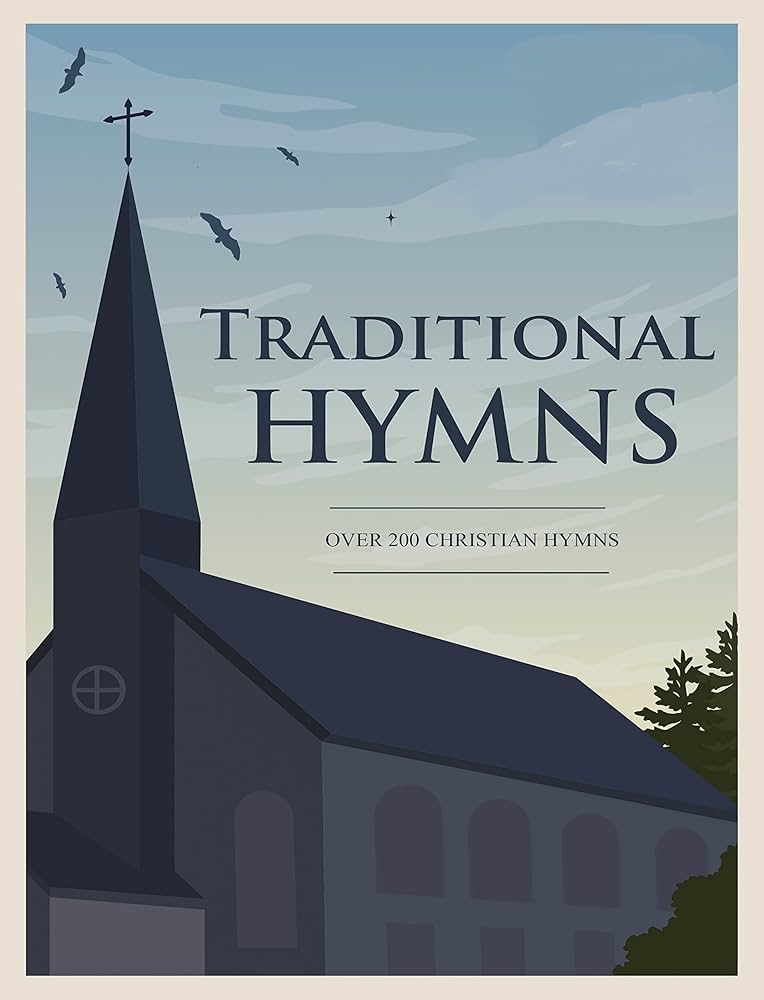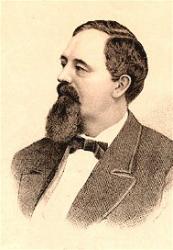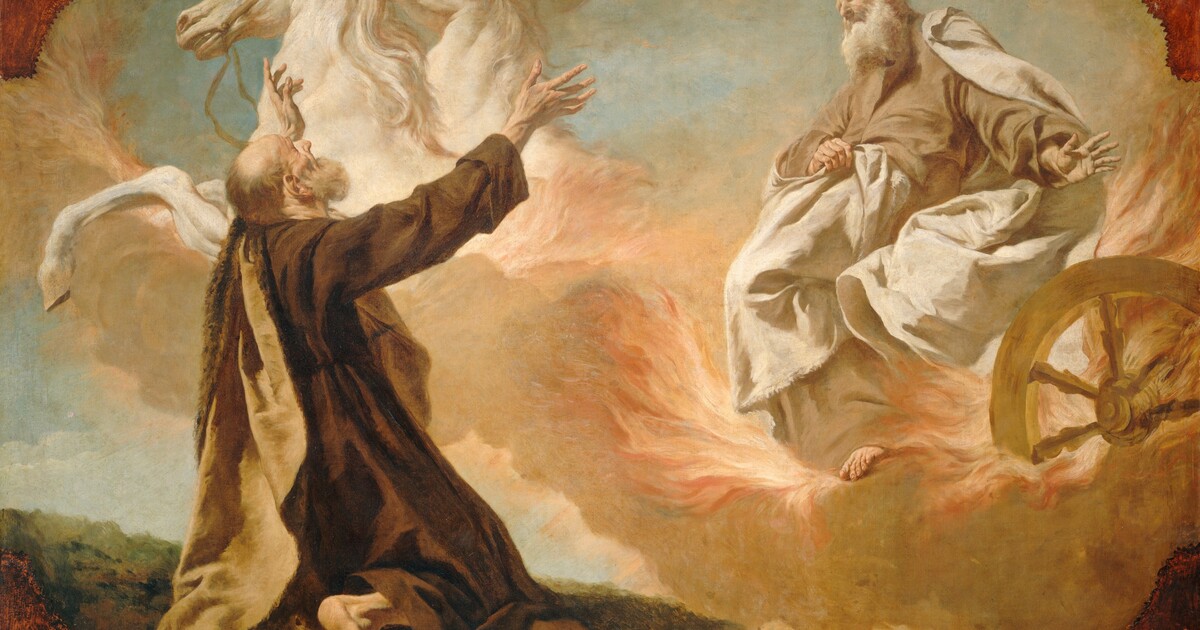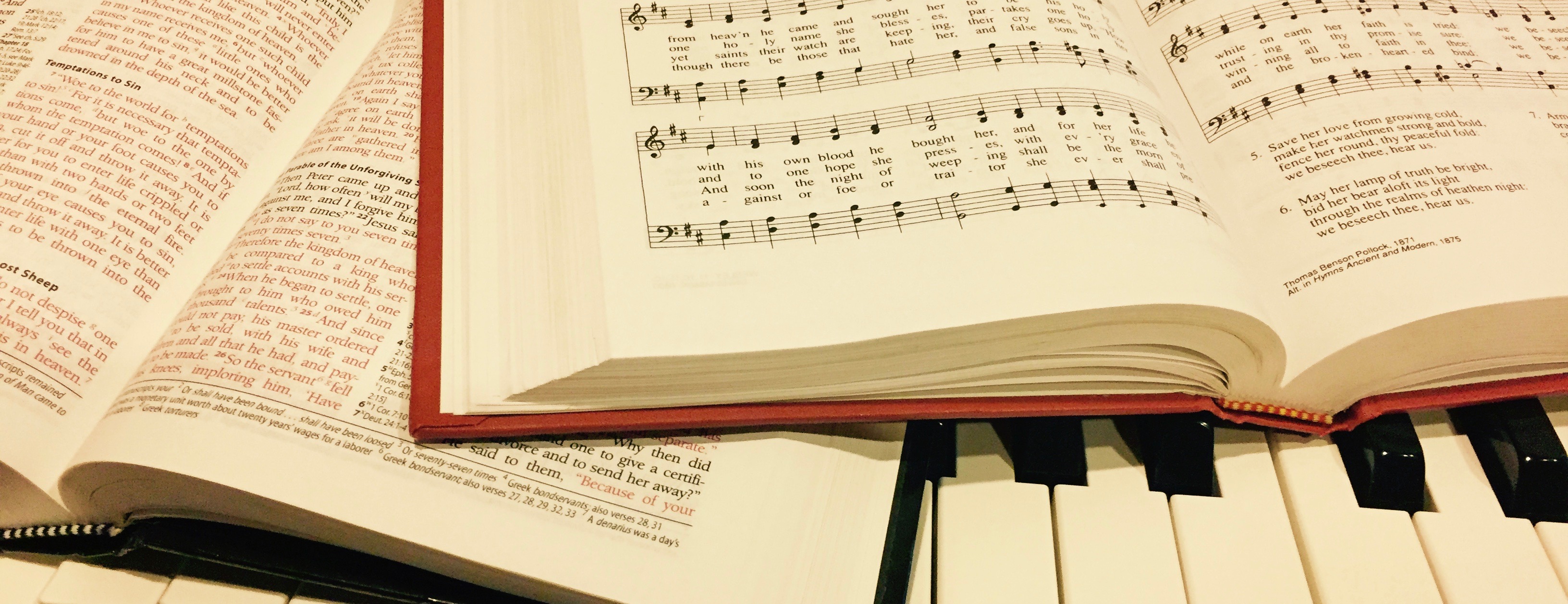Come, Thou Almighty King
By Anonymous
Lyrics
help us Thy name to sing;
help us to praise:
Father, all glorious,
o'er all victorious,
come, and reign over us,
Ancient of Days.
gird on Thy mighty sword,
our pray'r attend:
come, and Thy people bless,
and give Thy Word success:
Spirit of holiness,
on us descend.
Thy sacred witness bear
in this glad hour:
Thou who almighty art,
now rule in every heart,
and ne'er from us depart,
Spirit of pow'r.
eternal praises be
hence, evermore.
His sov'reign majesty
may we in glory see,
and to eternity
love and adore!
Bible Reference
Psalm 24:9,10
About This Hymn
"Lift up your heads, O ye gates; even lift them up, ye everlasting doors; and the King of glory shall come in. Who is this King of glory? The Lord of Hosts, He is the King of Glory." — Psalm 24:9–10 (KJV)
Come, Thou Almighty King stands as one of the most beloved hymns traditionally used as a call to worship, yet its origins remain shrouded in mystery. The hymn first appeared anonymously in London around 1757, reportedly in celebration of Trinity Sunday. Its early association with the national hymn God Save Our Gracious King is especially notable. For a time, both texts were sung to the same tune, which in the United States later became exclusively associated with My Country, ’Tis of Thee—using the melody known as America. Eventually, Come, Thou Almighty King was paired permanently with the tune Italian Hymn, a setting that has endured to the present day.
There has been considerable speculation about the hymn’s anonymous authorship. Some suggest it may have been written as a subtle act of protest against the royal anthem, providing a spiritual alternative—a prayer directed not to an earthly monarch, but to the heavenly King. This theory posits that the author may have chosen anonymity to avoid political repercussions. Others believe the hymn may have been intended as a theological sequel to God Save the King, transitioning the focus from national loyalty to divine sovereignty. Though the hymn has frequently been attributed to Charles Wesley—largely because it appeared in a 1757 pamphlet published by his brother John Wesley that also contained a hymn by Charles—many hymnologists dispute this claim. The use of an irregular meter, uncommon in Wesleyan texts, argues against Charles Wesley’s authorship.
An intriguing story from the era of the American Revolutionary War highlights the hymn’s enduring spirit and flexibility. According to tradition, British troops once interrupted a church service and demanded the congregation sing God Save Our Gracious King. In a clever and reverent act of defiance, the American worshipers sang the requested tune—but with the words of Come, Thou Almighty King instead. The hymn itself is deeply Trinitarian in structure and theology. Each of the first three stanzas addresses a distinct Person of the Godhead—Father, Son, and Holy Spirit—while the fourth stanza affirms the mystery and unity of the Trinity as a whole. As such, it is vital that all four stanzas be sung together; omitting any would diminish its doctrinal integrity. In his book The Knowledge of the Holy, theologian A. W. Tozer described the doctrine of the Trinity as “truth for the heart,” a truth that could not be devised by human reason but only revealed by divine revelation.
The hymn’s lasting union with the tune Italian Hymn has contributed greatly to its popularity. The music was composed in 1769 by Felice de Giardini, an Italian-born musician born in Turin on April 12, 1716. De Giardini later settled in London, where he gained recognition as a prominent violinist in operatic circles. His musical career eventually took him to Moscow, Russia, where he served as an opera conductor. He died there in 1796. The pairing of his jubilant melody with this fervent text has helped secure Come, Thou Almighty King as a staple in Christian worship, especially on occasions that emphasize God’s sovereign majesty and Trinitarian glory.
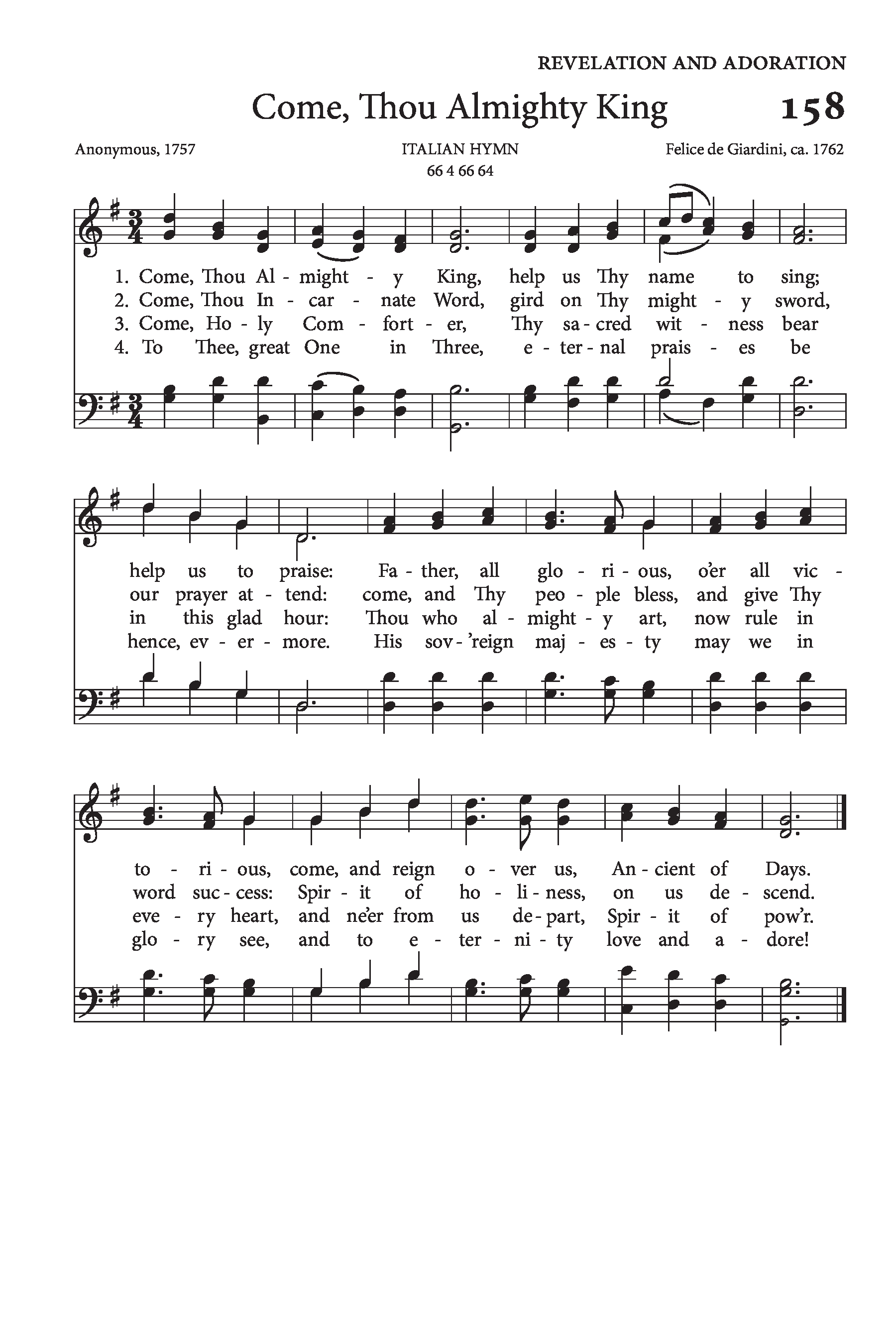

📬 Subscribe to Our Devotional Updates
Receive weekly hymns, devotionals, and website features directly in your inbox.
Hymn Information

- Category: Hymn
- Author/Writer: Anonymous (1757)
- Added: June 11, 2025
- Last Updated: June 11, 2025
- Views: 1328
To view the author's biography, click their name above.
MIDI File
Hymns from 1757
Popular Hymns
Recent Blog Posts
Popular Blog Posts
Visit Us on Social Media
Latest from X (Twitter)
Tweets by HymnalLibraryLatest from Facebook
Latest on YouTube
Daily Bible Verse
Disclaimer
The hymns, sheet music, MIDI files, and related content on this website are provided for educational and research purposes only.
- Public Domain: Many of the hymns featured here are in the public domain and may be freely used.
- Copyrighted Works: Some hymns may still be under copyright protection. Where applicable, permission has either been requested from the copyright owner, or the content is shared under the principles of fair use for educational purposes.
⚠️ Important Notice: If you wish to reproduce, distribute, or use any copyrighted hymn beyond personal study or educational use, you must obtain permission directly from the copyright holder. This website does not grant any rights for commercial use yet.
If there is any other question please address it to us in our Contact Page, for further assistance. Thank you for using the site. May God Bless You.
